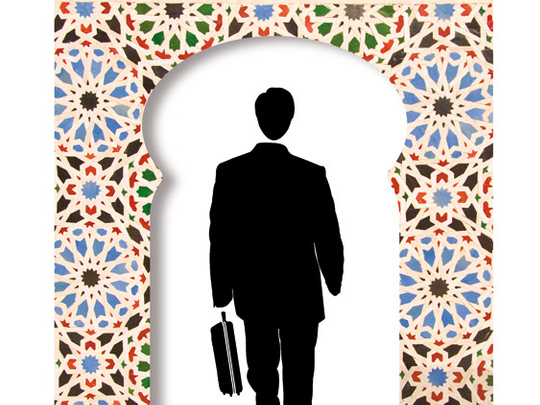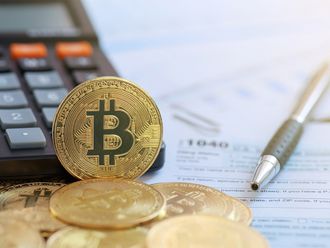
Following a story about the ‘flop' of Islamic banking in the UK, Reuters has followed up with an interesting article about the problems of Egypt's Islamic finance sector. The story highlights a combination of 1980s-style corruption scandals (Ponzi schemes), the lack of political will (level regulatory playing field) and growing consumer demand (an 80 million population), which has stunted the potential for Islamic finance in Egypt despite an interest in the country by Gulf-based Islamic banks.
In the article, a professor is quoted as saying Egypt is reluctant to encourage Islamic finance as it may result in political gain for the opposition party, the Muslim Brotherhood, yet in offering it, it may attract more Islamic groups.
Question: Does the Egyptian ‘anti-Islamist' situation resonate in the US?
The Egyptian government seems to be concerned about the potential consequences if it levelled the playing field for Islamic finance, and a US anti-Sharia movement is concerned about consequences of Sharia finance in America.
Let us take a step back for a deeper dive.
To my knowledge, a platform of Islamic finance has never been outcome determinative in any modern elections. It is more complicated, as Islamic finance has reached less than 2 per cent of the 1.6 billion Muslims in the 40 years of its existence. In fact, the Halal food industry has greater penetration in Muslim and non-Muslim countries than Islamic finance. Maybe the anti-Sharia movement needs to scrutinise the Halal food industry/consumption in US, as it may result in the end of baconburgers.
No backdoor creeping
Which Muslim majority country, ie, an Islamic Republic, has truly ‘Islamicised' their economy, meaning Islamic capital markets, companies and banks, and de-linked from interest-bearing instruments? Not Pakistan, Iran, Sudan nor any of the 57 Muslim-majority countries have Islamicised the economy since the birth of Islamic finance in the 1970s. For example, in Malaysia — where Islamic finance can be said to have started holistically in 1983 — only about 20 per cent of all banking operate under Islamic tenets.
There are more Islamic finance hubs in non-Muslim countries — like the UK, France, Luxembourg, Malta, Singapore, Hong Kong, South Korea, Japan, and Australia — than in declared Muslim countries like Bahrain, Dubai and Malaysia. Islamic finance has been in the UK since the 1980s, and, now with five FSA-sanctioned Islamic banks since 2004. Despite that, there has been no backdoor creeping in of Sharia.
In most cross-border Islamic finance contracts, the typical governing clause refers to the laws of a Common Law jurisdiction such as England and Wales, rather than Islamic laws or jurisdiction. Thus, contracting parties realise that Islamic law in resolving commercial disputes is fragmented at best (with diversified interpretations) or uncertain in outcome, at worst.
In the last few years, we have heard (in the US) an anti-Sharia movement's interpretation and position on Sharia (or Islamic) finance, and it can best be summarised as follows: if Islamic finance is officially sanctioned in US, then it will be on slippery slope to wholesale adoption of Sharia in a secular country, meaning cutting limbs, stoning, revoking women's rights, etc, is just around the corner. Its difficult to fathom strong personalities like Secretary of State Hilary Clinton, a champion of women's issues globally, would be silent on such issues in her own backyard.
Furthermore, to say Islamic finance is the slippery slope to wholesale adoption [of their] interpretation of ‘Sharia' is not only insulting to the US and its population of 300 million but questions the strength of the US Constitution. To have the IRS issue a favourable ruling on the tax deductibility of ‘profit share' payment on Islamic mortgages (nearly $2 billion in a multi-trillion dollar mortgage market) or making Islamic funds available on a funds supermarket platform (of nearly $3 billion in a multi-trillion dollar industry) only means there is a market for true asset-backed financing and screened investments.
For example, screened companies in an Islamic fund include Microsoft, Pfizer, P&G, Yahoo etc, where the screening results in a bias towards health care, technology, and energy. Islamic investing can be best described as "low-debt, non-financial, social ethical investing".
Fair and equitable
The US has overcome past political scare mongering, be it communist take-over or Japanese wholesale acquisition of America's trophy assets etc, and it will overcome today's anti-Sharia fear mongering in the same manner by asking for proof over propaganda. However, to be fair and equitable, we need to provide a platform for all airing their opinion on Islamic finance. The industry needs to hear and read the anti-Sharia movement's well-researched insights on Islamic finance. Hence, they should be encouraged to take their interpretations and comments to an international stage, as Islamic finance is a global phenomenon. It is no different than, say going to the World Economic Forum (Davos), and hearing a good debate on issues impacting finance, health, companies, and economies.
Thus, the Islamic finance conference organisers, Euromoney, IIR Middle East, CERT (Malaysia) etc, are encouraged invite the head of the anti-Sharia movement to make a keynote presentation and submit research papers in Muslim country Islamic finance hubs like Malaysia and the UAE, and non-Muslim country hubs like the UK, Singapore, Australia, etc. At such events they would have access to Sharia scholars and to ask first-hand questions on their qualifications and roles as advisers, and the concept of Zakat (almsgiving), which they have misunderstood.
The writer is Global Head of Islamic Finance at Thomson Reuters. Views expressed here are his own and do not reflect that of his organisation or of Gulf News.












